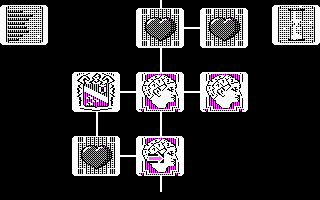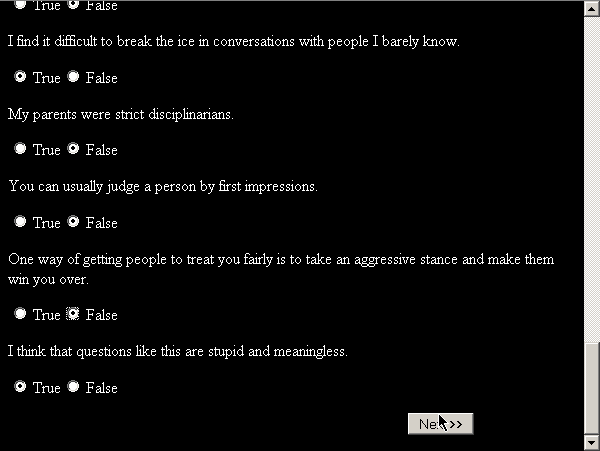Retro Replay Review
Gameplay
Alter Ego offers a unique, choice-driven gameplay loop that simulates the ebb and flow of a human lifespan. From the moment you create your character—choosing personality traits either by random roll or a brief questionnaire—the game challenges you to navigate seven distinct life phases. Each phase presents a series of scenario cards where you must make decisions, sometimes tinted by emotional “moods,” that influence your character’s future.
(HEY YOU!! We hope you enjoy! We try not to run ads. So basically, this is a very expensive hobby running this site. Please consider joining us for updates, forums, and more. Network w/ us to make some cash or friends while retro gaming, and you can win some free retro games for posting. Okay, carry on 👍)
Decisions in Alter Ego carry tangible long-term consequences. A simple choice in childhood might bolster your character’s confidence or chip away at their self-esteem, altering which situations arise decades later. This ripple effect encourages players to weigh short-term gratification against lasting benefits, making each playthrough a deeply personal journey.
The life tree mechanic visually represents each phase as a branching path of situations. You can see how earlier choices open or close branches, guiding you toward different career options, relationship paths, and even health outcomes. After a certain age, freeform life options unlock, allowing players to actively manage love, work, and lifestyle at will, rather than waiting for scripted events.
One of Alter Ego’s most compelling features is the possibility of an instant game over. Some decisions—like risky behaviors or extreme emotional reactions—can abruptly end your journey, reminding you that choices matter. This high-stakes environment keeps you engaged and invested in every card you flip over.
Graphics
Alter Ego’s visual presentation is minimalist yet effective, leaning into a clean, card-based interface that prioritizes storytelling over flashy visuals. The life tree diagrams and situation motifs employ simple line art and iconography, which keeps the focus on narrative and decision-making rather than high-fidelity graphics.
While there are no sweeping 3D worlds to explore, the subtle use of color and texture on each card helps convey mood and theme. Childhood scenarios might feature pastel backgrounds, whereas older-age events take on muted, sepia tones. This visual language underscores the passage of time without overwhelming players with visual clutter.
The user interface is intuitive: cards are easy to read and navigate, and the branching life paths are laid out clearly at each phase transition. Tooltips and status bars show your character’s health, happiness, and personality traits, giving you immediate feedback on how your choices are reshaping their life trajectory.
Overall, Alter Ego’s graphics serve its central purpose: facilitating an immersive life simulation. The design choices are intentional and coherent, creating an atmosphere that encourages reflection on your character’s well-being and personal growth.
Story
Alter Ego doesn’t feature a linear narrative or a fixed protagonist; instead, it crafts an emergent story shaped by your decisions. Each player’s experience is unique, as the game stitches together a life arc from your choices. This open-ended structure makes every playthrough feel like your own autobiography in the making.
The character you create might find early success, struggle through romantic heartbreak, or succumb to health issues, depending on how you steer them. Because the game spans infancy to old age, you witness the full spectrum of human experience—from first words and schoolyard dramas to career highs and the reflections of twilight years.
Even without a traditional storyline, Alter Ego delivers powerful moments of drama and introspection. You’ll face ethical dilemmas, weigh personal ambition against family obligations, and confront the consequences of neglecting your health. These narrative beats resonate precisely because they mirror real-life challenges.
The game’s two variations—male or female life paths—add nuance to each scenario. While many events overlap, some situations and responses shift based on gender, creating subtle differences in how society and relationships unfold for your character.
Overall Experience
Alter Ego is a thought-provoking life simulation that appeals to players who enjoy narrative-driven games and introspective decision-making. Its card-based presentation and branching life tree provide clear feedback on how your choices shape your character’s journey, making each session feel meaningful.
Replayability is high, as even small changes in early decisions quickly cascade into entirely different life stories. Fans of “choose-your-own-adventure” titles and simulation games will appreciate the depth and nuance that Alter Ego offers without relying on traditional quests or combat mechanics.
That said, the game’s minimalist graphics and text-heavy approach may not resonate with players seeking visually rich or action-oriented experiences. Alter Ego demands patience and reflection, rewarding those who savor slow-burning stories and long-term strategic planning over instantaneous thrills.
In summary, Alter Ego stands out as an innovative experiment in life simulation. By translating everyday choices into a branching narrative, it encourages players to ponder the weight of their decisions. For anyone curious about a game that mirrors life’s unpredictability and emotional complexity, Alter Ego is an engaging, unforgettable journey.
 Retro Replay Retro Replay gaming reviews, news, emulation, geek stuff and more!
Retro Replay Retro Replay gaming reviews, news, emulation, geek stuff and more!









Reviews
There are no reviews yet.